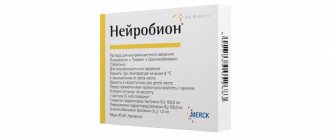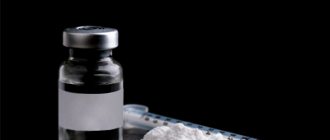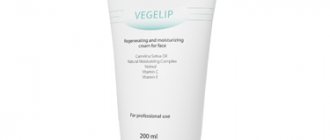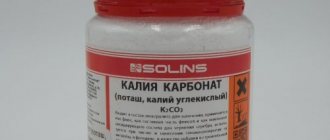Why does the human body need zinc?
Zinc is a trace element that can be found in almost every cell of the human body. Mainly accumulates in bone, muscle and connective tissue, as well as in blood cells: erythrocytes and leukocytes.
Zinc is involved in more than 200 enzyme reactions. This figure is higher than any other mineral. Most enzymes are composed of protein and an essential trace mineral and vitamin. If an enzyme lacks a trace element or vitamin, it cannot perform its function efficiently.
Due to the central role of zinc in so many enzymes, a decrease in its levels affects almost all body systems.
List of some functions of zinc in the body:
- Zinc is involved in the activation of enzymes responsible for the construction and destruction of genetic material in the body.
- Zinc is essential for strengthening memory and concentration.
- Zinc is essential for the immune system. Even in old age, zinc restores the functions of the thymus gland, which controls the functioning of the entire immune system.
- Zinc promotes the growth process.
- Zinc is needed for wound healing.
- Zinc has an anti-inflammatory effect.
- Zinc prevents hair loss.
- Zinc is essential for the normal functioning of the testicles and prostate gland.
- Zinc slows down the aging process and prevents the development of cataracts.
- Zinc helps prevent cancer.
- Zinc neutralizes alcohol in the body.
- Zinc is necessary for the absorption of vitamins A, C and E.
Frequent infections
Although zinc plays an important role in immune system function, too much zinc can suppress your immune response ().
This is usually a side effect of anemia and neutropenia, but has also been shown to occur outside of zinc-induced blood disorders.
In test tube studies, excess zinc reduced the function of T cells, a type of white blood cell. T cells play a central role in your immune response, attaching to and destroying harmful pathogens (, ,).
Human studies also support this, but the results are less consistent.
A small study of 11 healthy men after taking 150 mg of zinc twice daily for six weeks showed a decrease in immune response ().
However, taking 110 mg of zinc three times daily for one month had mixed effects in older adults. Some had a reduced immune response, while others had an increased response ().
Summary:
Taking zinc supplements in doses higher than the DVIL may suppress your immune response, making you more susceptible to disease and infection.
Benefits of zinc for men, women and children
The role of zinc for the female body
It is estimated that more than 80% of the world's pregnant women do not get enough zinc, consuming an average of 9.6 mg of zinc per day, which is well below the recommended minimum daily intake levels during the last two trimesters of pregnancy in areas with low bioavailability levels zinc
Low zinc levels are correlated with preterm birth, low birth weight, growth restriction, and preeclampsia, a serious pregnancy complication that causes increased blood pressure, water retention, and protein loss in the urine. In studies of dietary zinc supplementation during pregnancy, it was found that the group taking zinc supplements had higher body weight and head circumference compared to the placebo group, and there were fewer pregnancy complications.
According to recent data, up to 30% of healthy women over 50 years of age have a zinc deficiency. Zinc is part of superoxide dismutase, which is involved in the regulation of lipid peroxidation. Therefore, superoxide dismutase is a key antioxidant enzyme. In addition, zinc is part of the genetic apparatus of the cell, representing about 100 zinc-containing nucleoproteins. It is necessary for the growth and division of all cells of the body, all regeneration processes, and is part of the structure of estrogen receptors, thus regulating all estrogen-dependent processes.
It was found that women with breast cancer have significantly increased levels of plasma lipid peroxidation, and prophylactic zinc supplementation for 10 years in premenopause significantly reduces the risk of developing this disease.
We recommend
“The hormonal system: 4 functions, 9 elements, 8 tips for improvement” Read more
It is important to note that this effect is significantly enhanced when zinc is taken along with b-carotene (provitamin A), ascorbic acid (vitamin C) and a-tocopherol (vitamin E).
The role of zinc for the male body
Zinc is involved in spermatogenesis, testosterone synthesis, is part of superoxide dismutase, which neutralizes excess ROS, is responsible for the preservation of genes during spermatogenesis, ensures normal maturation and motility of sperm, optimal consistency and antibacterial activity of sperm plasma. The zinc content in sperm is very high – 1900 mcg/g. It is spermatozoa that are carriers of the zinc reserve necessary for the normal course of all phases of fragmentation of the fertilized egg, up to its fixation in the uterine cavity.
The role of zinc for children
Zinc is known to play a critical role in biological processes, including cell growth, differentiation and metabolism, and deficiency of this trace element impairs children's growth and weakens resistance to infection, which significantly increases morbidity and mortality in young children.
An analysis from one study found that a daily 10 mg dose of zinc for 24 weeks resulted in a net height gain of 0.37 (±0.25) cm among children receiving a zinc supplement compared with children who did not. such an additive. In addition, zinc supplementation may have a greater effect on the growth of stunted children compared to other children. Zinc supplementation alone has a greater effect on linear growth than zinc plus iron supplementation, possibly due to an interfering effect on zinc absorption or bioavailability.
Nausea and vomiting
Nausea and vomiting are usually side effects of zinc poisoning.
A review of 17 studies on the effectiveness of zinc supplements for treating colds found that zinc may shorten the duration of colds, but side effects were common. In fact, 46% of study participants reported nausea ().
Doses greater than 225 mg are emetic—meaning that vomiting is likely and can occur quickly. In one case, severe nausea and vomiting began 30 minutes after a single dose of 570 mg of zinc (,).
However, vomiting may occur at lower doses. In one six-week study, more than half of 47 healthy people who took 150 mg of zinc per day experienced nausea and vomiting ().
Although vomiting may help the body rid itself of toxic amounts of zinc, it may not be enough to prevent further complications.
If you have consumed toxic amounts of zinc, seek medical attention immediately.
Summary:
Nausea and vomiting are common and often immediate symptoms of zinc overdose.
Symptoms of Zinc Deficiency
Although severe zinc deficiency is extremely rare in developed countries, dietary surveys indicate that the average zinc intake is only 47-67% of the recommended daily value.
The most common symptoms of zinc deficiency
:
- decrease or loss of taste;
- decreased sense of smell;
- chronic diarrhea;
- dry skin (dermatitis);
- growth retardation in children;
- poor memory;
- low sperm count in semen, leading to infertility;
- decreased production of testosterone in the male body, which can lead to impotence;
- fatigue and irritability;
- depression;
- reduced resistance to infectious diseases;
- delayed wound healing.
We recommend
“Common types of diets in nutritionology and their descriptions” Read more
Other signs often correlated with low zinc levels include poor night vision, growth retardation, testicular atrophy, mouth ulcers, white coating on the tongue, and severe halitosis.
Changes in taste
Zinc is important for your taste. In fact, zinc deficiency can lead to a condition called hypogeusia - dysfunction in your ability to taste ().
Interestingly, an overdose of zinc can also cause taste changes, including an unpleasant or metallic taste in the mouth.
Typically, this symptom is reported in studies of zinc cough drops or liquid cold supplements.
While some studies report positive results, the doses used are often well above the TIDL of 40 mg per day, and side effects are common ().
For example, 14% of participants in a one-week study complained of a distorted sense of taste after dissolving 25 mg zinc tablets in the mouth every two hours while awake ().
In another study using a liquid supplement, 53% of participants reported a metallic taste in their mouth. However, it is unclear how long these symptoms last ().
If you are using zinc lozenges or liquid supplements, be aware that these symptoms may occur even if the product is taken as directed ().
Summary:
Zinc plays a role in taste perception. Overdosing on zinc can cause a metallic taste in the mouth, especially if taken in lozenge or liquid supplement form.
Who is predisposed to zinc deficiency
As we age, the absorption of important minerals, including zinc, can be impaired. In addition, not eating enough zinc-containing foods or regularly drinking alcohol can also lead to chronically low zinc levels. But there are other factors that tend to cause zinc deficiency, such as:
- acute infectious diseases/inflammatory processes;
- alcoholic cirrhosis;
- alcoholism;
- anorexia nervosa;
- burns;
- post-traumatic syndrome;
- protein deficiency;
- vegetarian diet;
- starvation;
- alcoholism;
- celiac disease;
- chronic blood loss;
- diabetes;
- diarrhea;
- a diet high in dietary fiber;
- diet with a high calcium/zinc ratio;
- diet with a high iron/zinc ratio;
- liver diseases;
- pancreatic insufficiency.
For many health conditions, taking zinc as a dietary supplement is especially important because the body uses more of it or reduces its absorption. Here is a list of those that are mentioned most often: acne, Alzheimer's disease, colds, diabetes, macular degeneration, rheumatoid arthritis.
Read more about the effect of taking zinc in these diseases:
- Acne
A 2013 study published in The Journal of Drugs in Dermatology found that zinc, taken orally or used topically, may be helpful in treating acne due to its antibacterial and anti-inflammatory properties.
A 2021 study reported in the journal Dermatologic Therapy found, “Zinc is a promising alternative to other acne treatments due to its low cost, effectiveness, and lack of systemic side effects.”
- Alzheimer's disease
In one small study, ten patients with Alzheimer's disease were given 27 mg of zinc (in the form of zinc aspartate) daily. Only two of these patients showed slow improvements in memory, comprehension, communication abilities, and social connections.
According to a study published in the Journal of Alzheimer's Disease, low zinc levels and too high copper levels are risk factors for dementia. According to University of California Los Angeles (UCLA) researcher Dr. Dale Bredesen, the optimal ratio of copper to zinc is 0.8:1.2. The optimal level of zinc in the blood is 90-110 mcg/dl.
- Cold
Zinc exhibits direct antiviral activity, including against several viruses that can cause the common cold.
A 2021 study by the British Journal of Clinical Pharmacology found that “patients with colds may be advised to try zinc lozenges to treat colds,” and a 2021 study concluded that “patients with colds may be advised to try zinc lozenges to treat colds.” try zinc acetate lozenges within 24 hours of symptoms onset.”
Another study in 2021 found that zinc gluconate and zinc acetate lozenges were equally effective. Recommended dose: Zinc lozenges, 30 mg, as directed on label.
- Diabetes
Zinc is involved in almost all stages of insulin metabolism, including both synthesis and secretion, and the regulatory stage.
It is important to take zinc because diabetics tend to lose a lot of zinc and other water-soluble nutrients in their urine. Several studies have shown that taking dietary zinc supplements improved insulin sensitivity in diabetes and prediabetes.
- Macular degeneration
In the treatment of age-related macular degeneration (AMD), zinc has demonstrated a positive effect on reducing the severity of vision loss. Zinc plays an essential role in retinal metabolism, and the elderly have a high likelihood of zinc deficiency. Apart from studies that used a combination of different beneficial substances, zinc itself improved the condition of patients with AMD. It was the impressive results of zinc supplementation that led to the highly acclaimed National Institutes of Health study on age-related eye disease.
Targeted nutrition tips
that will increase your energy level by 10 out of 10
From TOP nutritionists of the MIIN
Get tips
- Rheumatoid arthritis
Zinc has antioxidant properties and is also a cofactor metal for the antioxidant enzyme superoxide dismutase (Cu/Zn-SOD). Patients suffering from rheumatoid arthritis usually have low zinc levels; Several studies have used zinc in the treatment of this disease, some of which have shown some therapeutic effect. In most of these studies, zinc was used in the sulfate form. It is possible that the results demonstrated would have been better if a more easily absorbed form of zinc had been used instead.
Taking medications also depletes the body's zinc reserves.
They may reduce the absorption of zinc or increase the excretion of zinc from the body. If you are taking such medications, do not stop taking them without first consulting your doctor. Taking a quality multivitamin that contains zinc should help prevent deficiencies caused by the use of the following medications:
- Acid reducers - include ranitidine, famotidine, omeprazole, esomeprazole and pantoprazole.
- Angiotensin-converting enzyme inhibitors—used to treat high blood pressure. Examples of such drugs are lisinopril, benazepril, enalapril, captopril and ramipril. Research suggests that chronic use of this class of drugs may result in increased urinary excretion of zinc.
- Diuretics are a class of drugs used to normalize blood pressure. These include hydrochlorothiazide, triamterene-hydrochlorothiazide (Dyazide, Maxzide), chlorthalidone, and furosemide (Lasix). Unfortunately, their chronic use can result in decreased zinc levels in the blood, in addition to loss of potassium and magnesium.
- Birth control pills.
- Antibiotics.
Drugs such as ciprofloxacin, levofloxacin, and tetracycline may interact with zinc within the intestine, resulting in decreased zinc absorption.
Daily norms
| Daily dose of zinc for infants: Age | Recommended dose of zinc | Dangerous dose of zinc |
| 0-6 months | 2 mg. | 4 mg. |
| 7-12 months | 3 mg. | 5 mg. |
| Daily dose of zinc for children: Age | Recommended dose of zinc | Dangerous dose of zinc |
| 1-3 years | 3 mg. | 7 mg. |
| 4-8 years | 5 mg. | 12 mg. |
| 9-13 years | 8 mg. | 23 mg. |
| Daily dose of zinc for boys and men: Age | Recommended dose of zinc | Dangerous dose of zinc |
| 14-18 years old | 11 mg. | 34 mg. |
| 19 years and older | 11 mg. | 40 mg. |
| Daily dose of zinc for girls and women: Age | Recommended dose of zinc | Dangerous dose of zinc |
| 14-18 years old | 9 mg. | 34 mg. |
| 19 years and older | 8 mg. | 40 mg. |
| For pregnant women: | ||
| 14-18 years old | 12 mg. | 34 mg. |
| 19 years and older | 11 mg. | 40 mg. |
| For nursing mothers: | ||
| 14-18 years old | 13 mg. | 34 mg. |
| 19 years and older | 12 mg. | 40 mg. |
Available Forms of Zinc as Dietary Supplements
There is a wide range of forms of zinc. Although zinc sulfate has been used in many clinical studies, it is not as well absorbed in this form. Zinc picolinate, acetate, citrate, bisglycinate, oxide or monomethionine have the greatest bioavailability.
Most zinc lozenges use zinc gluconate, which is an effective form for this use.
Possible side effects:
When taken on an empty stomach (especially if zinc sulfate is used), zinc-containing dietary supplements may cause gastrointestinal upset and nausea. Long-term use at a dosage of more than 150 mg per day can lead to anemia, decreased HDL cholesterol levels and immunosuppression.
Abdominal pain and diarrhea
Typically, abdominal pain and diarrhea occur in combination with nausea and vomiting.
In one review of 17 studies on zinc supplements and the common cold, approximately 40% of participants reported abdominal pain and diarrhea ().
In more severe cases, a person may experience intestinal irritation and gastrointestinal bleeding.
In one case study, a person experienced intestinal bleeding after taking 220 mg of zinc sulfate twice daily to treat acne ().
In addition, zinc chloride concentrations exceeding 20% are known to cause significant corrosive damage to the gastrointestinal tract (,).
Zinc chloride is not used in dietary supplements, but poisoning can occur due to accidental ingestion of household products. Adhesives, sealants, soldering fluxes, cleaning chemicals and wood finishing products contain zinc chloride.
Summary:
Abdominal pain and diarrhea are common symptoms of zinc overdose. In some cases, severe gastrointestinal damage and bleeding may occur.
Plant and animal foods high in zinc
Zinc is found in many plant foods
:
- Pumpkin seeds - 7.6 mg per 100 g.
- Cashew nuts - 5.4 mg per 100 g.
- Sunflower seeds - 5 mg per 100 g.
- Pine nuts - 4.1 mg per 100 g.
- Almonds - 3.4 mg per 100 g.
- Pistachios - 2.2 mg per 100 g.
- Beans (cooked) - 4.1 mg per 1 cup.
- Lentils - 2.5 mg per 1 glass.
- Tofu - 1.6-4 mg per 1 glass.
- Rye flour - 6.4 mg per 1 cup.
- Coarse wheat flour - 3.6 mg per 1 cup.
- Oatmeal (cooked) - 1.2 mg per 1 cup.
- Rice (boiled) - 1.2 mg per 1 glass.
- Boiled wholemeal pasta - 1.3 mg per 1 cup.
Zinc in animal products:
- Lean ground beef - 10.2 mg per 100 g.
- Chicken liver (boiled) - 4 mg per 100 g.
- Turkey meat (boiled) - 3.1 mg per 100 g.
- Oysters - 74 mg.
- Roast beef - 7 mg.
- Alaskan (king) crab - 6.5 mg.
- Beef cutlet - 3 mg.
- Lobster - 3.4 mg.
- Pork chop - 2.9 mg.
- Yogurt - 1.3 mg. for packaging.
In addition to the quantitative content of zinc in foods, it is important how effectively the body absorbs zinc from various foods.
What helps and what hinders the absorption of zinc in the body?
Coffee and tea interfere with the absorption of zinc (due to the caffeine contained in these drinks), calcium and copper reduce the absorption of zinc in the body.
Vitamin B2 increases the availability of zinc for the body. Vitamin B6 reduces the excretion of zinc from the body in urine. But vitamin B9 does not combine with zinc. Vitamin B9 affects the transport of zinc in the body and vice versa.
We recommend
“How to take probiotics correctly to avoid side effects” Read more
It is recommended to soak grains, nuts, and seeds before consumption to improve the absorption of zinc:
Consequences of zinc deficiency in the body
Zinc deficiency
destroys the immune system, negatively affects the nervous system, leads to male and female infertility, and in pregnant women can lead to complications during childbirth.
But excess zinc in the body is also not harmless.
. May cause nausea and even symptoms of poisoning. In addition, excess zinc interferes with the absorption of other minerals, especially manganese, copper and iron. Because large doses of zinc interfere with the absorption of selenium and copper, this can lead to anemia.
Conclusion:
Zinc is an essential mineral critical to optimal health. A well-balanced diet rich in zinc-containing foods is important to ensure adequate levels of zinc in the blood and tissues. Zinc may be beneficial for a variety of health conditions.
Before additional intake in the form of dietary supplements, we recommend that you find out the level of zinc in the blood; it is considered to most accurately reflect its reserves in the body. And be sure to consult with a specialist, since excess zinc can negatively affect the body with symptoms of intoxication.
Vitamin C
Almost every person has been familiar with ascorbic acid (another name for vitamin C) since childhood. It is usually used to prevent colds and strengthen the immune system. Vitamin C is a water-soluble vitamin that cannot be synthesized independently in the body.
This organic substance is found in many foods, such as citrus fruits, various types of cabbage, broccoli, bell peppers and even potatoes. However, not always a sufficient amount of the vitamin comes from food, so it is also consumed in the form of tablets, capsules and syrups.
Vitamin complexes and medicines with vitamin C:
- Vitamin C 500;
- Superia Vitamin C;
- Doppelhertz Active Vitamin C MAX;
- Laferoflu vitamin C;
- Hyaluron-Filler vitamin C.
Vitamin C: the benefits of a popular vitamin
Vitamin C enhances the immune response to pathogens that enter the body. After taking ascorbic acid, more interferons are produced, special proteins that are produced in response to the penetration of a virus or bacteria. Lymphocytes (cells of the immune system) begin to actively move through the blood and thus reach the problem area faster.
The vitamin in question also neutralizes free radicals that destroy cells and accelerate the aging process, resulting in reduced oxidative stress.
During a cold, vitamin C levels can drop sharply because most of it is used to boost immune responses. Therefore, during colds and for their prevention, it is recommended to use this organic substance. In addition, vitamin C promotes healthy bones, muscles and blood vessels.
Daily value of vitamin C
The amount of ascorbic acid that can be taken per day should not exceed the following:
- children under 3 years old - 5 mg;
- children 4-8 years old - 25 mg;
- adolescents from 9 to 13 years old - 45 mg;
- adolescents 14-18 years old - 65-75 mg;
- adults over 19 years of age: men 75 mg, women 90 mg;
- pregnant women - 85 mg;
- women breastfeeding - 120 mg.
The maximum daily dose is 2000 mg. If you take more, you may experience an overdose of vitamin C, which will provoke a number of negative consequences.
Vitamin C overdose
Abuse of any product always entails negative consequences. As for ascorbic acid, if you drink more than 2000 mg of it, the following side effects may occur:
- stomach upset;
- dizziness and headache;
- insomnia and problems with sleep quality;
- stomach pain;
- nausea and vomiting;
- spasms of various parts of the body.
If a person has the congenital disease hemochromatosis, then consuming excess amounts of vitamin C can lead to unsafe health consequences. With this pathology, too much iron accumulates in the body and taking ascorbic acid can provoke arthritis, cirrhosis of the liver and the formation of stones in the kidneys and bladder.
Interaction with other substances and drugs
Protease inhibitors . Using vitamin C together with these medications reduces the effectiveness of the latter.
Aluminum . Ascorbic acid accelerates the process of absorption of aluminum from medicines that contain it. Taking them together is unsafe for people with kidney problems.
Nicotinic acid (statins and niacin) . If you take these drugs at the same time as a vitamin, this will lead to a decrease in the effectiveness of niacin and statins.
Warfarin. It is an anticoagulant that prevents the formation of blood clots and reduces blood clotting. Ascorbic acid may reduce its effectiveness.
Oral contraceptives . Taking vitamin C together with hormonal therapy leads to an increase in estrogen levels.








